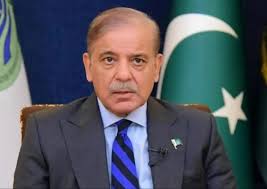India’s regional hegemonism root cause of all problems: Chinese Scholar

fznor
Beijing: India’s regional hegemonism against smaller neighboring countries is the root cause of all problems, Cheng Xizhong, visiting professor at Southwest University and former Defense Attache in South Asian countries said on Friday.

India has been constantly creating conflicts with its neighbors. In the border areas between China and India, the Indian army has repeatedly crossed the Line of Actual Control (LAC), and deliberately launched provocative attacks against Chinese troops.
Last year, India released a new version of the political map, classifying the disputed areas between India and Nepal as “Indian territory”. The Indian army frequently launches fierce attacks on Pakistan, firing indiscriminately and for no reason on the Pakistani side near the line of control in Kashmir. In order to be a regional overlord, India goes too far in bullying others, he said in an article.
He observed that it has become a common method of the Bharatiya Janata Party (BJP) government led by Narendra Modi to divert the public attention from the domestic focus through foreign military operations.
Populism is becoming a challenge to the development of India. No matter it is the BJP or other political parties, it is difficult for India’s elite to avoid the influence of populist politics under the democratic system.
What’s more dangerous is that the Indian media are also full of populism. They maliciously publicize and report on neighboring countries, deliberately provoking people’s hostility to other countries, thus making the situation worse and worse, he added.
He said, all along, India has been committed to a very impressive superpower, and strives to realize the dream of great power, but it does not have good relations with its neighbors.
India regards Pakistan as enemy, Bhutan, Nepal, Maldives, Sri Lanka and even Bangladesh as India’s “backyard”, and regards the development of relations between China and its South Asian neighbors as “encircling India”. India’s big power mentality is very complicated.
The increasingly obvious anti-China strategy of the United States may make India a closer economic partner of Washington, and the United States will intensify its efforts to shape India into a “strategic counterweight” against China.
Against this background, the American support for New Delhi is making the latter bolder in dealing with disputes with its neighbors.
India’s policy in South Asia is mainly divided into two parts: one is regional hegemonism against smaller neighboring countries; the other is that India is willing to be the agent of the west to “contain” China out of envy of China’s development.
In order to seek hegemony, India has even launched a “proxy war”, that is, using terrorist and extremist organizations to undermine the social stability and economic development of neighboring countries, he said.





